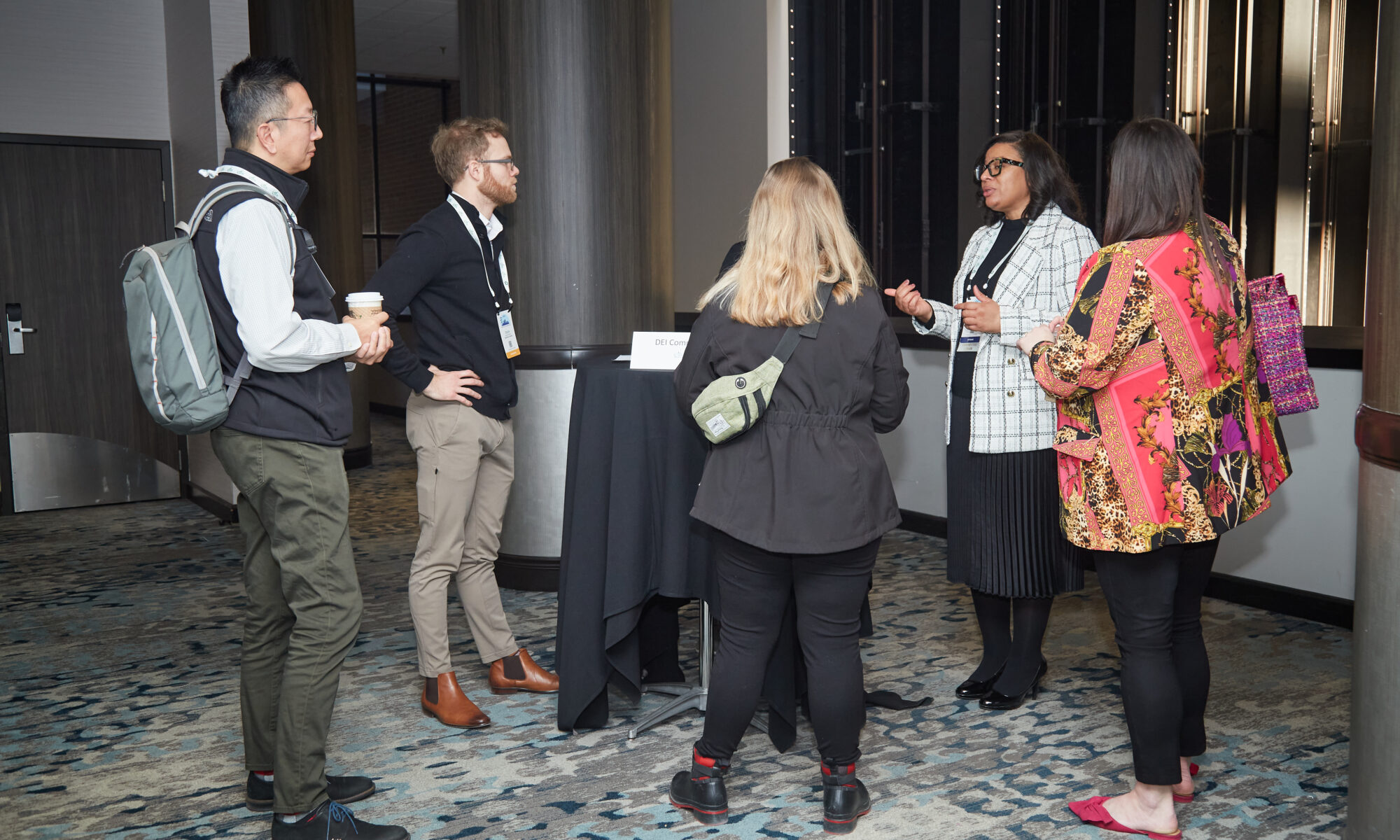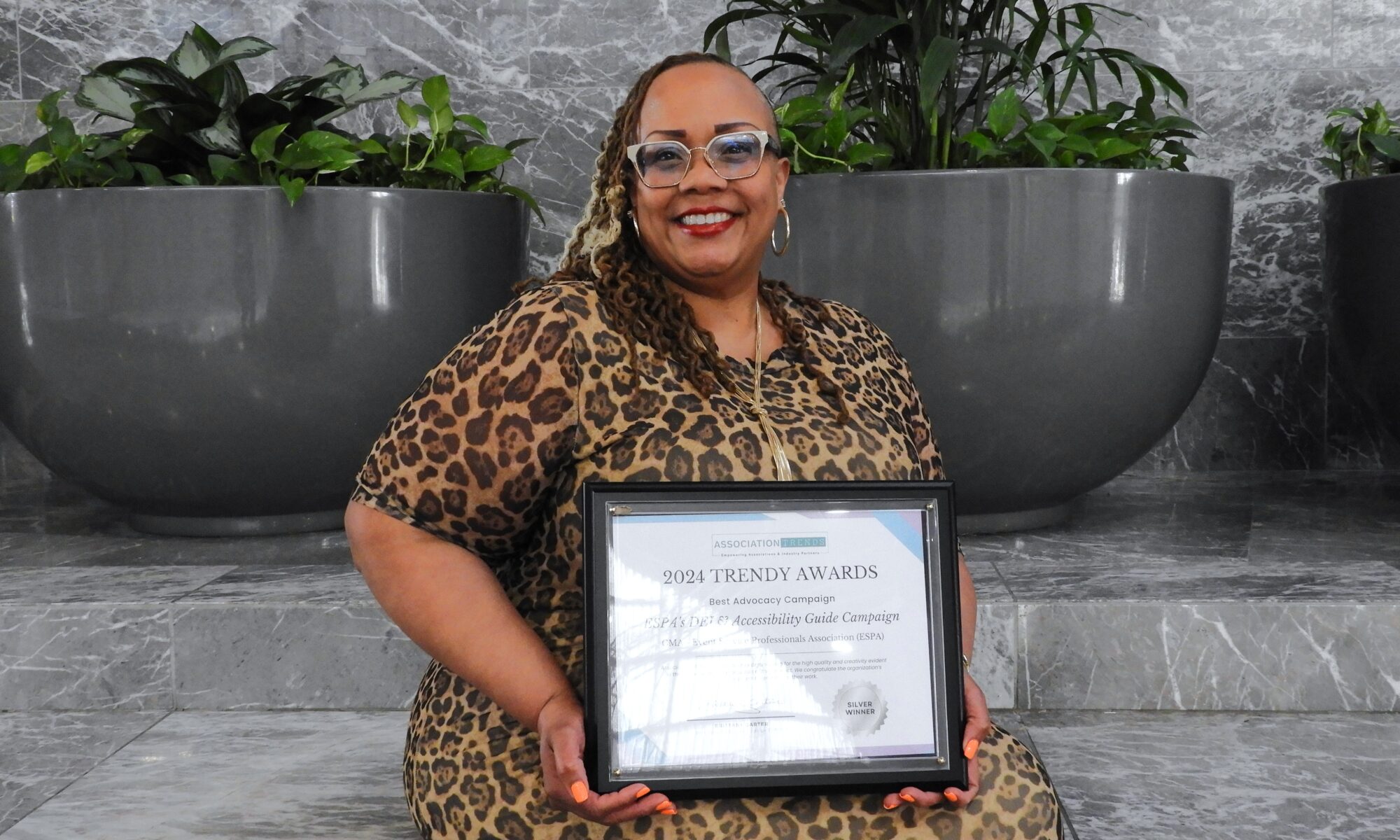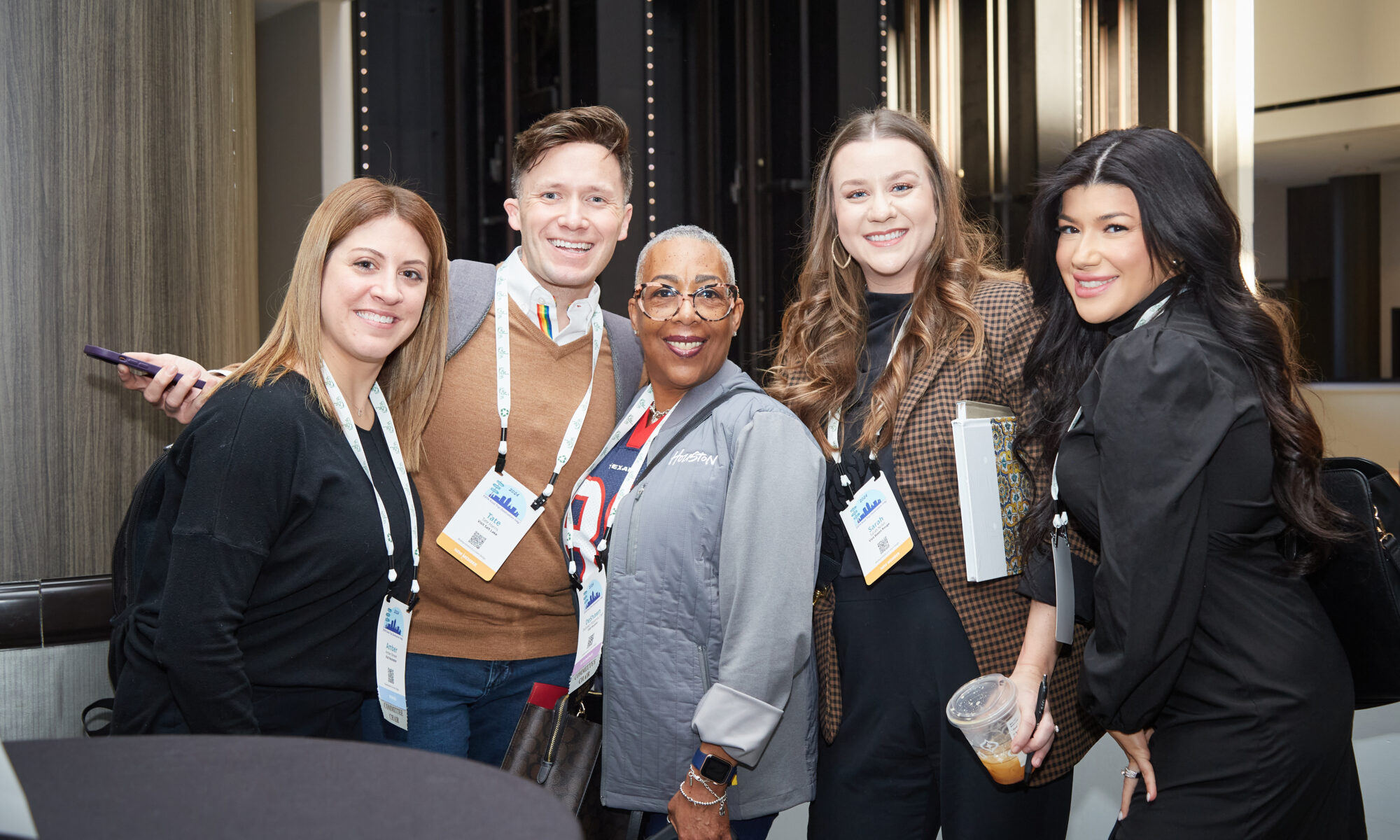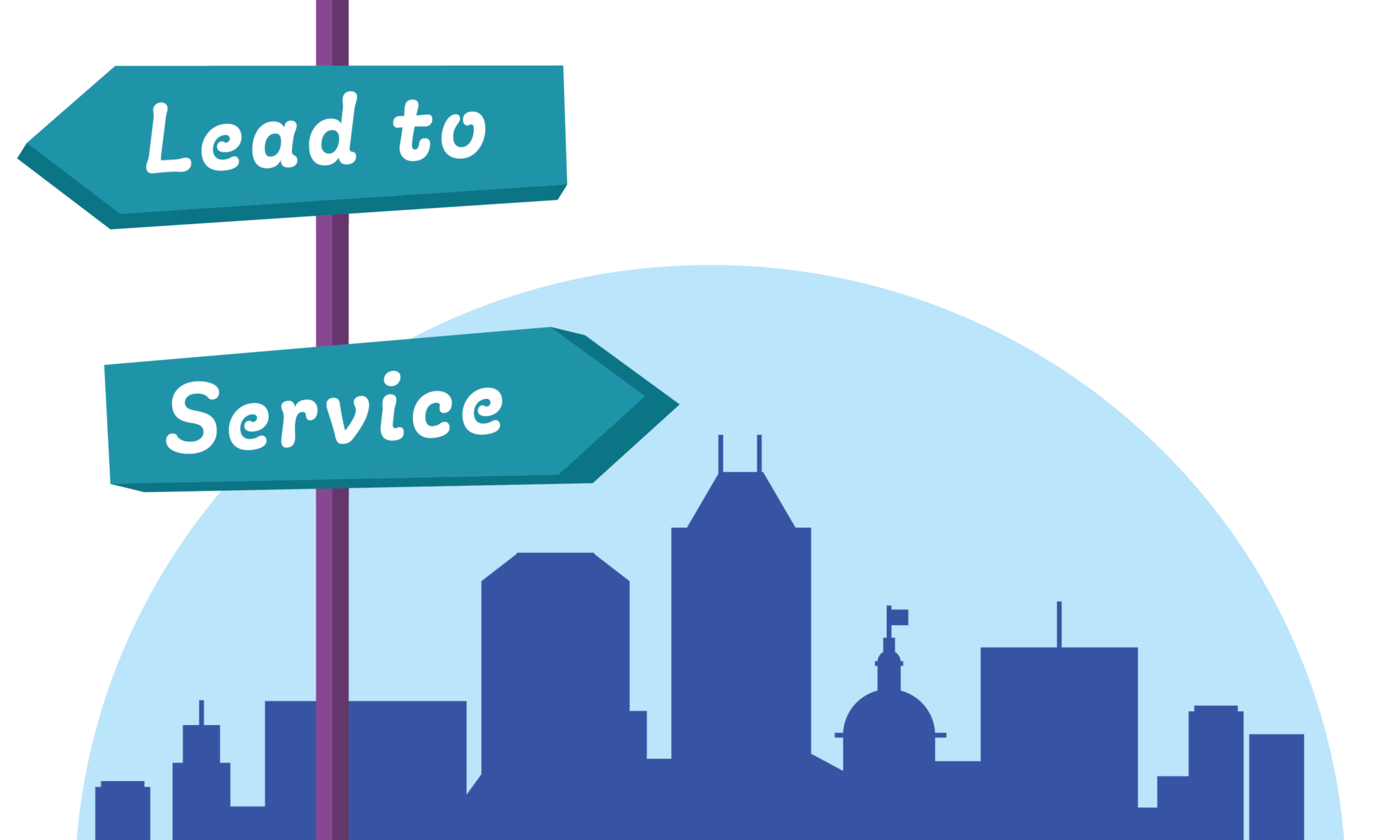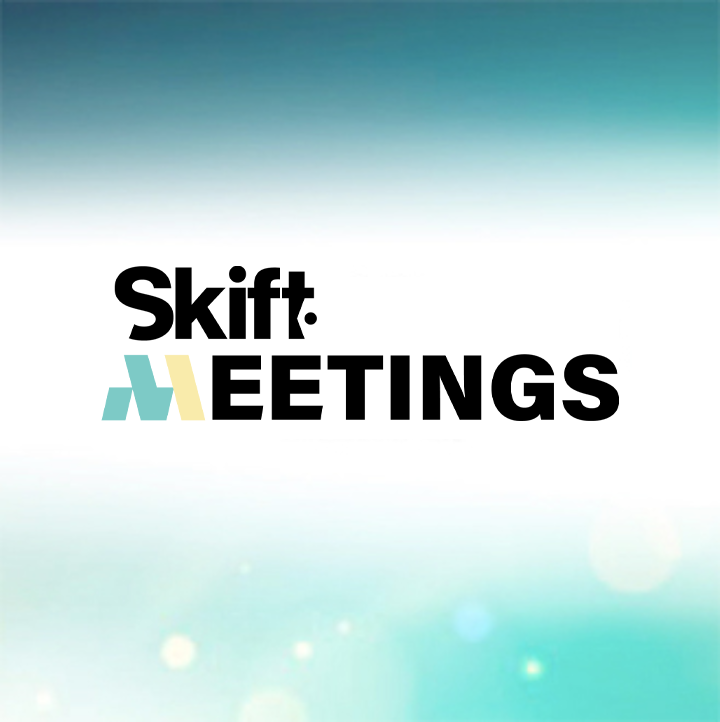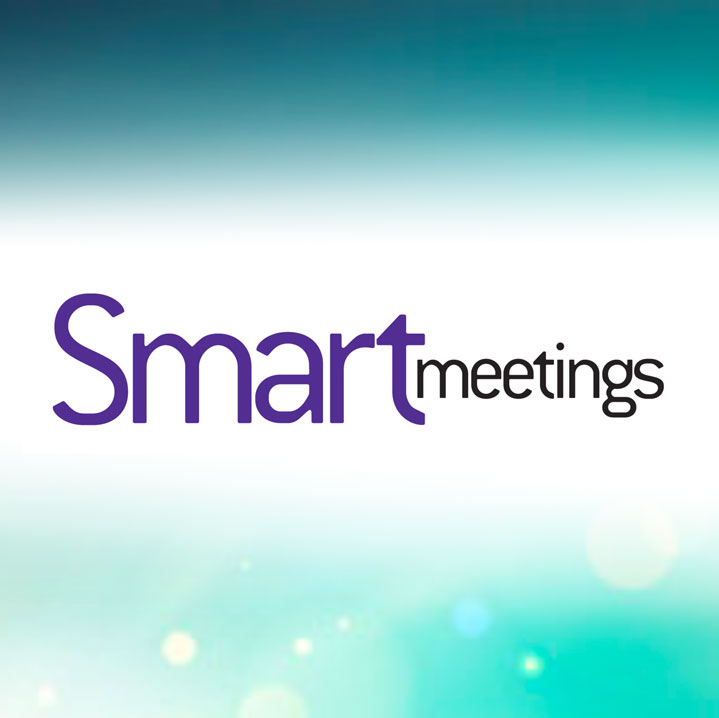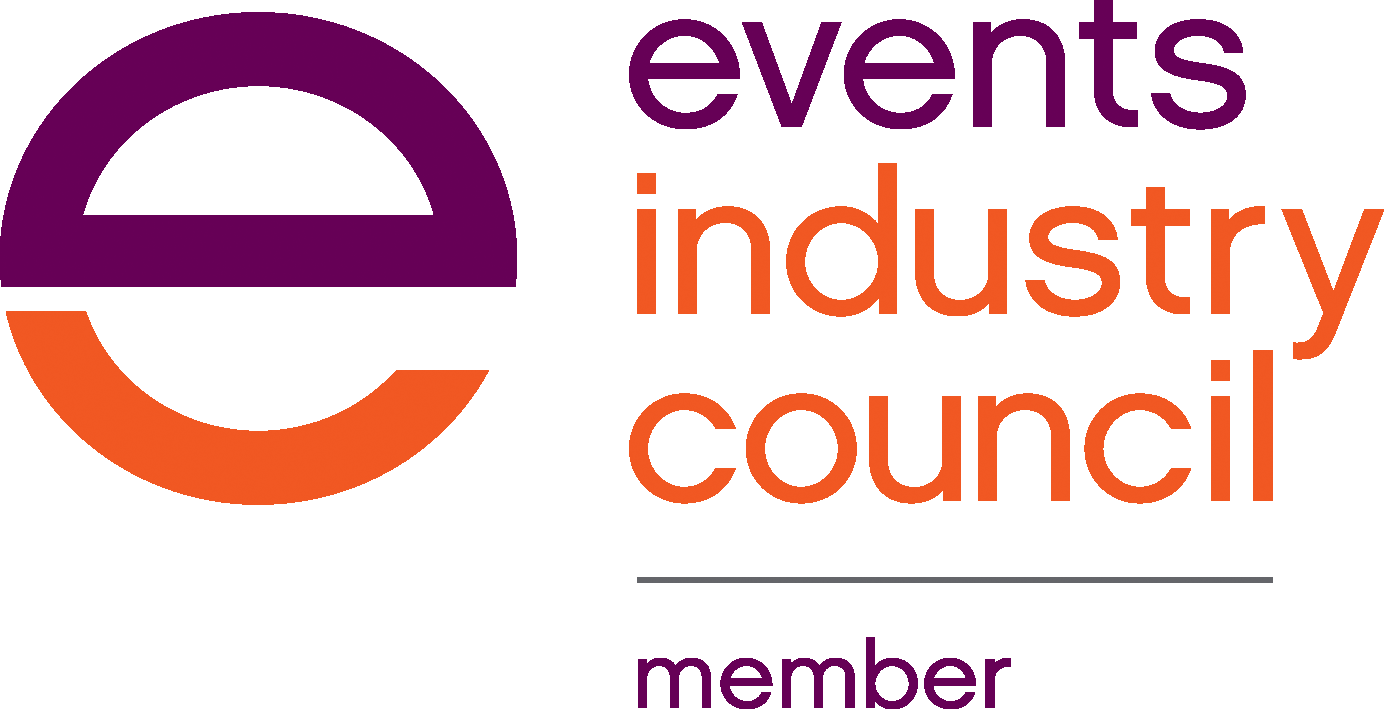Coordinate schedules, confirm site visits, manage budgets, review every layout—it’s a lot. Every detail, every choice, makes an impact. Now, pull it all together for a flawless attendee experience. It’s a big responsibility, but you don’t have to do it alone.
Event service professionals (ESPs) from convention centers, hotels and CVBs can help simplify the process and make it smoother. Below are some proven strategies from my ESPA colleagues to help make it happen.
ESPA Honored for “Best Advocacy Campaign” by Association TRENDS
National Award Recognizes DEI, Accessibility Resources for Setting New Standards in Event Services
PRINCETON JUNCTION, N.J. – May 7, 2024 – The Event Service Professionals Association (ESPA) announced today that it has won a national award from Association TRENDS, a leading association industry publication, for its contributions in ensuring a more inclusive and accessible meeting experience for clients and guests across the industry with two new, easy-to-access resources.
ESPA won silver for “Best Advocacy Campaign” by collaborating with its members to initiate a task force to develop a Diversity, Equity and Inclusion (DEI) guide and Accessibility Toolkit. Both ground-breaking resources, free to download on the group’s website, address critical deficits in the sector by providing event service professionals at hotels, convention centers, convention and visitors bureaus (CVBs) and all other venues with practical and actionable advice on enhancing diversity and accessibility at their venues and destinations.
“Our industry must be committed to opening doors and inviting various extensions of our diverse community to be a part of the journey,” said Dominique Bonds, ESPA president. “We’re proud that Association TRENDS has honored our efforts to develop best practices and tools to help address these critical gaps. All event service professionals should be empowered to enhance the pillars that hold up our profession. Both of these resources deliver the blueprint to do just that.”
ESPA boasts a membership of more than 500. Members work at hotels, convention centers and CVBs and coordinate with meeting planners post-sale to execute events. ESPA empowers its members with continuous education, networking and other key resources to excel in event management.
About ESPA
The Event Service Professionals Association (ESPA) represents over 500 members who play a crucial role in the hospitality industry as event service professionals. Our members work at hotels, convention centers and CVBs and manage all the logistics of an event with a meeting planner to efficiently bring it to life after the sales team closes the sale. ESPA prepares members preparing members for their pivotal role in innovative and successful event execution through education and networking.
For more information, visit www.espaonline.org.
Foster Diversity, Equity and Inclusion: 4 Strategies for Event Service Professionals
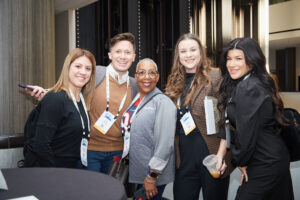
Event service professionals (ESPs) are dedicated to connecting their clients and visitors with community partners, acting as the key resource and destination and venue liaison for event planners. This offers a unique opportunity to make cultural connections and have a meaningful impact on diversity, equity and inclusion (DEI), which is quickly becoming an essential component for incoming groups.
In honor of Diversity Month, Dominique Bonds, a respected and award-winning thought leader at the Pennsylvania Convention Center (PCC) and president of the Event Service Professionals Association (ESPA), shares strategies to foster DEI when working with your clients.
DEI Strategies
There needs to be a conscious intentionality associated with facilitating events—a recognition that we’re not a homogeneous population when we come together for events. Therefore, it’s paramount to create an inclusive, accessible, gender-affirming space/destination in which all guests feel a sense of belonging.
This entails applying the following DEI strategies, so that we can encourage others to do the same:
- Ask questions and educate yourself.
Do some homework to develop a better understanding of your client. As a starter, look at past speakers, panelists and themes. Understand their cultural and attendee experience goals and objectives for their event, so you can help them to make a strong cultural connection to your city. Be sure to avoid making assumptions and being performative. - Expand your network.
Assuming that traditional demographic information is already known, expanding your network of vendors, suppliers and speakers is essential, to name a few. Ensure you have a database of diverse providers of goods and services that you can tap into to best support your client’s needs and expectations. You should have some working knowledge of the companies in this database—get out into the city, meet with diverse partners and build your resource list.The Institute for Supply Management defines supplier diversity as a procurement practice that requires the purposeful inclusion of diverse suppliers in bid opportunities to increase their representation in sourced spend. Building a culture that supports supplier diversity is action-oriented and involves rethinking processes.
- Remember, representation matters.
Everyone wants to show up and feel a sense of inclusion and belonging. Establish a team to champion DEI efforts and be open to developing leadership-supported employee resource groups (ERGs). ERGs or similar brave spaces can bring diverse voices, perspectives and experiences into the conversation. They will also help ensure that representation is intentional and meaningful.Equally important is to demonstrate your commitment to DEI. Equip and empower your employees with DEI education and meaningful training tools. To show DEI commitment, a DEI statement should be noted on your organization’s website. Incorporate DEI initiatives into your company’s mission and core values. Ensure that your statement and commitment to DEI are visible on community platforms, which helps to hold you and your organization accountable.Consider making DEI training mandatory for all employees, which can be done quarterly or semi-annually. Also, provide opportunities for offsite staff experiences with a destination partner that encompasses what DEI represents, which will educate your staff about diverse cultures and experiences.
- Highlight inclusive marketing.
Before visitors connect with your city, they visually look for signs of relatability—a welcoming connection and sense of belonging. Spotlight inclusive marketing through thoughtful language, visuals, social media and strategies to ensure you’re reaching as wide an audience as possible in a way that properly reflects your company’s values.Additionally, research and be able to provide an inclusive and diverse suggested speakers list, as well as information on inclusive engagement opportunities.
Creating inclusive, equitable and diverse event experiences must be a consistent and evolving process. ESPs must be open to exploring the various resources at their disposal, demonstrating their commitment to this effort. The ultimate goal is for DEI to become an organic process that’s truly engrained in the fabric of event planning.
DEI Guide and Accessibility Toolkit
To explore DEI event best practices and resources, download DEI, A Guide for Event Service Professionals. ESPA developed these new standards to inform event service professionals of the significance and impact of diversity initiatives for their venues and destinations and provide guidance on the three primary pillars of DEI—Education, Supplier Diversity and Inclusive Marketing.
ESPA also recently released a revised version of its Accessibility Toolkit, A Guide for Event Service Professionals. The Guide is a downloadable resource that hotels, convention centers, CVBs and venues can use to ensure a more inclusive meeting experience for guests in their venues and destinations.
Shaping Tomorrow’s Event Leaders: What Students Learned at ESPA’s Annual Conference
Early talent development is a strategic investment for the event services industry. The sector is strengthened by ensuring a continuous surge of qualified professionals and molding tomorrow’s leaders.
The Event Service Professionals Association (ESPA) recognizes and encourages this mindset. For 30 years, ESPA has been the only association representing event service professionals from convention and visitor bureaus (CVBs), hotels and convention centers across North America.
ESPA provides students interested in pursuing a career in event services a student membership option, which consists of networking and mentorship opportunities with professionals working in the field and remote training and education sessions. Student members also receive priority consideration for the ESPA Conference Scholarship, which offers professional development opportunities at ESPA’s Annual Conferences.
Meet ESPA’s Scholarship Recipients
The following students were honored with conference scholarships and attended the ESPA Annual Conference in Indianapolis in January 2024.
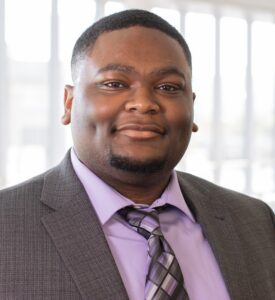
Kenyon Jamaal Bones is a student at Indiana University–Purdue University Indianapolis (IUPUI). His industry experience includes catering, parking and working at the front desk. He believes that these are some of the best ways he’s been able to learn more about the industry and experience it firsthand.
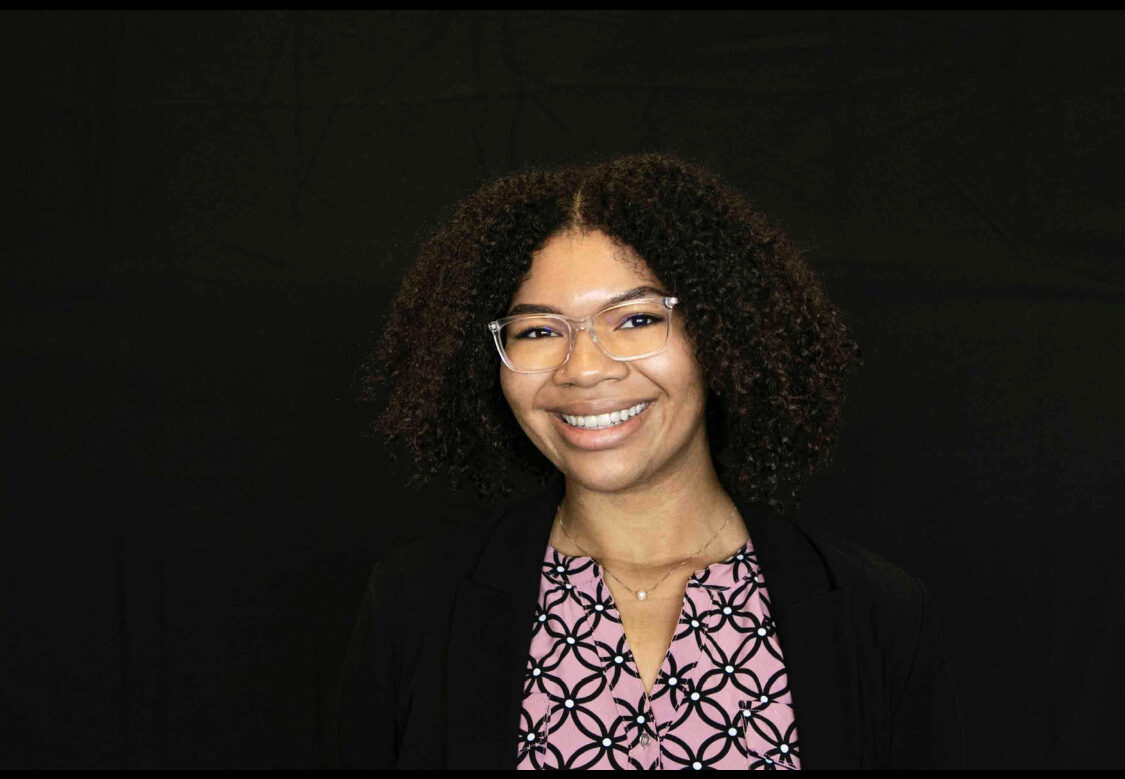
Melia Donner is a junior at Indiana University Indianapolis studying event management. She’s a member of the Professional Convention Management Association, Meeting Professionals International and ESPA, which have helped her develop new skills and further her education. Donner began working in the events industry through a catering company and recently started a new position with Accent Indy, the destination management company for Indianapolis. Outside these positions, she’s gained experience by volunteering for various events, including NEXTGEN Indy, Indiana’s State of Tourism, the Indiana Artisan Fair and the Indianapolis 500. Donner also will be volunteering for the NBA Allstars.
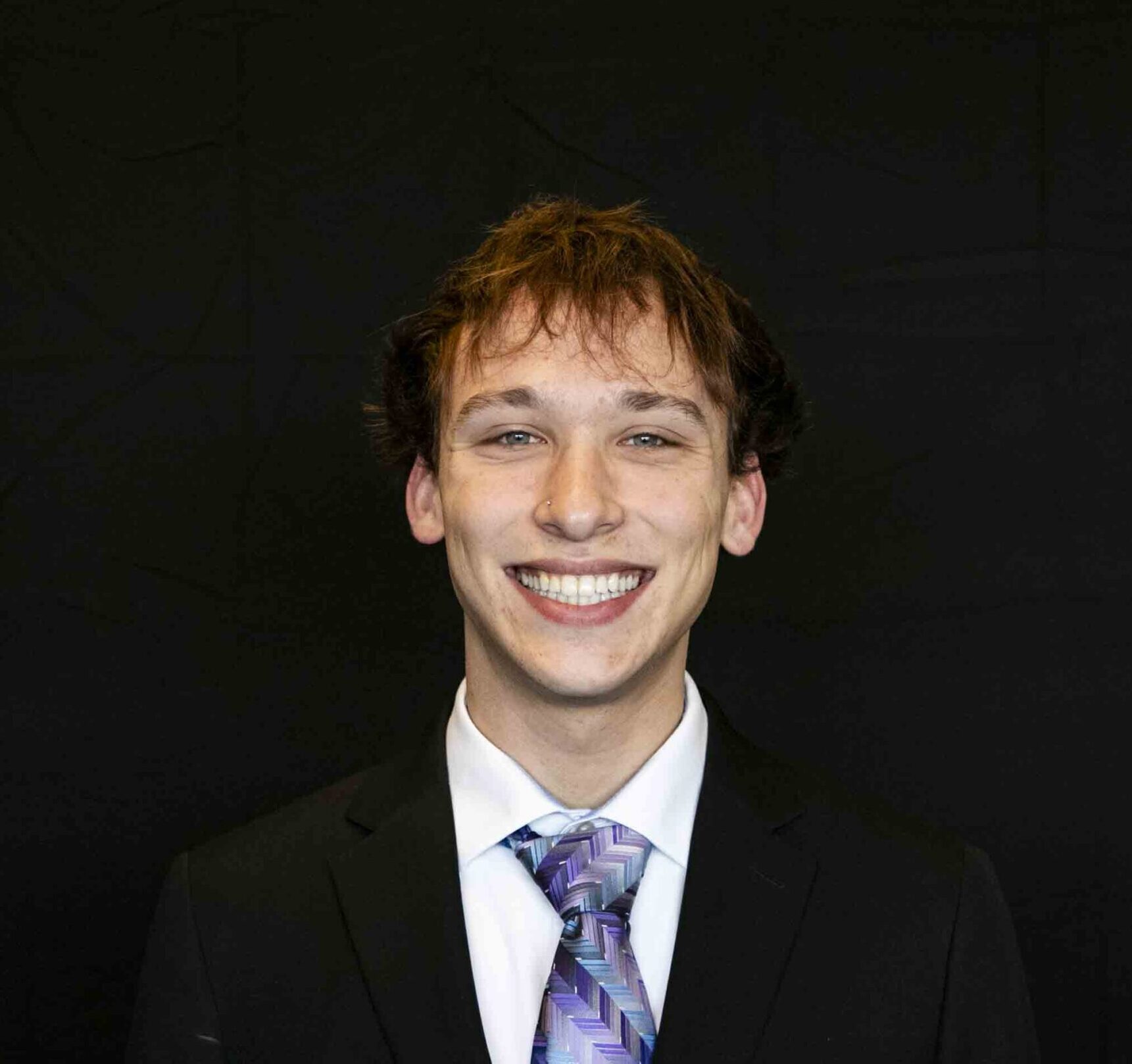
Gavin Michael McMinn is a first-year student at IUPUI. He’s studying tourism, convention and event management, with certificates in business, hospitality and beverage management. McMinn is an assistant event coordinator at the Indiana Convention Center and Lucas Oil Stadium, supervising the night events.
Scholarship Recipients Q&A
Discover why the scholarship recipients chose to study event management and their key learnings and takeaways from the ESPA Annual Conference.
Q: Why Did You Choose to Study Event Management?
A: Bones: I aspire to learn more about what makes people travel and explore the hospitality of a city. Choosing event management didn’t come easy, but at the end of the day, I realized it’s where I want to be.
A: Donner: About three years ago, I started working for City Barbeque Catering, which is where I found my passion and talent for events. This is when I realized that I belonged in the hospitality industry. Initially, I was a psychology major at a different university. At that point, I quickly realized that I was not meant to be there and started looking for other options that better fit my interests and personality. I didn’t know that studying events, tourism and hospitality was an option until I scanned the list of majors offered by IUPUI. It was a no-brainer once I discovered this major.
A: McMinn: I have a passion for planning and bringing people together. I had an internship in college, where I planned events for a nonprofit and fell in love with it.
Q: What Are Your Career Aspirations?
A: Bones: My career goal is to own a hotel chain. I hope to make it a great place for people to have events and enjoy themselves.
A: Donner: Ideally, I’d like to work as an event planner. Although, I’ve learned that it’s best to be flexible and open to opportunities. Therefore, I’m not set on one particular job, but I see myself staying in Indianapolis and contributing to the hospitality and events industry here. I excel in areas such as logistics and operations. As such, I’d like to find a job that enables me to utilize those skills.
A: McMinn: My career goal is to become an event planner and own a company where I help nonprofit organizations plan fundraisers. I also would love to work within the government to help cities have better tourism experiences.
Q: What were some key learnings from the conference?
A: Bones: Connecting with people is simpler than one might think. Everyone has something to learn from someone else.
A: Donner: I learned how important connecting and sharing ideas with people throughout your industry is. Several people I spoke to were looking for solutions to problems—whether those issues applied to the industry or their individual role or company. Many times, new ideas arose from talking to other professionals. Having access to different opinions, experiences and advice will get you further than the internet will.
The other big takeaway was the importance of sustainability and how to work towards this goal. The ideas and strategies presented by the speaker will undoubtedly be incorporated into my future work.
A: McMinn: My key takeaways were networking is necessary, and the events industry has a lot to do to make it more sustainable.
Q: What did you find most interesting at the conference?
A: Bones: The networking session was so much fun. Everyone was great to meet, and we had many valuable things to discuss and share. It was an excellent exchange of ideas and information between all the attendees.
A: Donner: I found the public safety sessions most interesting. Apart from sustainability, safety is one of the most significant issues to be addressed in today’s world. Understanding how to develop a mutual relationship with public safety officials to protect guests was invaluable.
A: McMinn: I loved the keynote speaker’s workshop. I learned a lot about how we need to make this industry more sustainable. The amount of waste is unacceptable.
Significance of Nurturing Future Industry Talent
ESPA President Dominique Bonds offers her insights on the value of these educational opportunities for students and ESPA’s role in fostering future event services industry talent.
Q: How can exposure to ESPA’s annual conferences increase students’ understanding and enthusiasm for the event services industry?
A: Students have a unique opportunity that includes, but isn’t limited to:
- Participation in educational sessions.
- Engaging with peers, seasoned professionals and industry leaders.
- Learning about the industry’s evolution and current state.
- Uncovering what’s just beyond the horizon.
Networking and access to decision-makers in the industry can help catapult their professional careers in the event services industry.
Q: Why is it important for students to have these types of experiences?
A: Having the opportunity to network and learn from industry professionals in the conference environment is unique and provides a real-world and real-time understanding of the industry that is different from what students receive in a classroom setting. These experiences go a long way in providing more comprehensive insight into the event services industry.
Q: What’s ESPA’s role in nurturing event services industry talent?
A: ESPA professionals have a tremendous role in mentoring and teaching future industry professionals. We have an opportunity to share what we’ve learned and what we wish we had been taught earlier in our careers. This insider knowledge can help those new to the industry be encouraged and also avoid unnecessary pitfalls.
Q: How does the scholarship program help contribute to the professional growth of young talent in the event services industry?
A: The ESPA scholarship program recognizes and rewards young talent for their creativity, leadership and professionalism—three essential attributes of an event service professional. The conference’s features and mentorship from experienced professionals provide an ideal setting for advanced learning and growth.
Q: What are the long-term industry benefits of supporting students?
A: Investing in our future means teaching and learning from students, giving them knowledge and insight, listening to and accepting their ideas and opinions, and showing them the way while being open to a new path. This investment will help with the event services industry’s growth, sustainability and evolution. What better benefits could we hope for?
The 2025 ESPA Annual Conference is scheduled for Jan. 31 – Feb. 2, 2025, at the Marriott Louisville Downtown. Don’t miss the chance to apply for the ESPA Conference Scholarship. Click here to learn more about the event service profession and the student membership opportunities that are available.
New ESPA Accessibility Toolkit for Meetings & Events
The Event Service Professionals Association (ESPA) has introduced new accessibility toolkit for meetings and events. The free downloadable resource guide was created to help hotels, convention centers, destinations, and venues be more inclusive and accessible.
The 2023 Meetings Trendsetters Blazing Trails in the Events Industry
As the meetings and events industry evolves at a rapid clip, staying up to date with the changes is less daunting when you have trailblazers leading the way. Whether it be through providing resources for ensuring inclusivity, educating colleagues on the importance of accessibility or planning events that push the envelope, it’s because of these individuals that the industry constantly grows. Congratulations to the Meetings Trendsetters class of 2023!
Read More at Meetings Today.
The Z: Industry Organizations and Associations Offering Student Memberships
College professors don’t stress the importance of real-world experience for nothing.
Until you’ve stepped into the shoes of a professional in the position you hope to have one day, there’s no sure way of knowing whether the career path you’re on is really the one you want to follow.
As students and emerging industry professionals, our biggest task is to learn from those willing to teach and share their industry knowledge with us. That means taking advantage of every educational opportunity that knocks, like the following student membership opportunities within meetings and events industry organizations and associations.
Read More at Meetings Today.
Event Service Professionals Publish Meetings DEI Guide
The knowledge and duties of event service professionals (ESPs), aka convention service managers, is where the rubber meets the road in the meetings and conventions world. Sales sells the dream and hands the ball off to ESPs, who take it forward to service the meeting, working with meeting and event planners and local venues, vendors and suppliers to make their event dreams a reality.
DEI, or diversity, equity and inclusion, is rapidly becoming an integral part of that dream for meetings, and ESPs hold the key position to ensure events are inclusive and reflective of all communities, from convention center ballrooms and exhibit floors to hotel meeting rooms, offsite venues and activities,
and beyond.
Read More at Meetings Today.
New DEI Guide for Event Service Professionals
The Event Service Professionals Association (ESPA) has released new standards to help the meetings industry become more diverse, equitable, and inclusive.
An event service professional is a crucial member of a meeting professional’s onsite team. They work at a hotel, convention center, or CVB and manage an event’s logistics with the meeting planner to efficiently bring it to life. As the primary destination and venue liaison and resource for event planners, they have a unique opportunity to make cultural connections and a meaningful impact on diversity, equity and inclusion (DEI) for incoming groups.
Denise Reid is the ESPA president and event planning manager at the Hyatt Centric French Quarter in New Orleans. She has led this important initiative joined by 14 others ESPA members a year and a half ago. “There were some representing destinations who didn’t know what DEI included or what it means. So they asked to be part of our effort,” said Reid. “The downloadable guide we created is a tool we expect them to use. It’s not just checking a box of actionable items.”
The guide covers three pillars of DEI practices: Education, Inclusive Marketing and Supplier Diversity.
Read More at Skift Meetings.
Why is DEI Critical to the Hospitality Industry?
Service professionals connect events with diverse community resources
Event Service Professionals are sounding the alarm for Diversity, Equity and Inclusion (DEI) to be recognized as critical threads in the fabric of the services industry with the recent release of the Event Service Professionals Association (ESPA) downloadable toolkit Diversity, Equity and Inclusion, a Guide for Event Service Professionals. This resource introduces foundational practices to assist professionals in the hospitality industry who aspire to host successful events welcoming and accepting all stakeholders to feel a sense of genuine inclusiveness. The industry, further, has a duty to promote diversity in the earliest planning of events to reflect the essence of stakeholder touch points.
Read More at Smart Meetings.

